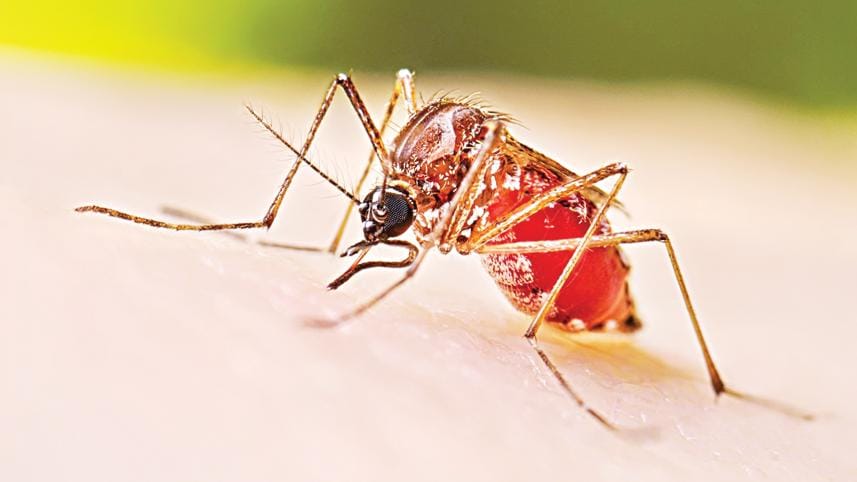Dengue cases cross 10,000 mark this year

As many as 429 dengue patients were hospitalised in the last 24 hours until yesterday morning, a single-day record for this year, as the total number of dengue cases crossed 10,000.
Currently, 1,167 dengue patients are undergoing treatment at different hospitals, including 853 from outside Dhaka, according to the DGHS. The total number of deaths so far this year is 42 while the caseload rose to 10,296.
Experts have warned that immediate action is needed nationwide, particularly outside the capital, to control the spread of Aedes mosquitoes that transmit the disease.
Entomologist Kabirul Bashar said the government must prioritise eliminating mosquito breeding sources instead of focusing on fogging. Bashar recommended using Insect Growth Regulators (IGRs), which remain effective for up to three months.
"These should be used along with larvicides. In places where chemicals aren't needed, people must clean and overturn water containers to stop breeding."
Entomologist GM Saifur Rahman called for a dedicated vector control department to manage mosquito-borne diseases scientifically.
Meanwhile, the DGHS is sending a team of medicine specialists to train local doctors in Barguna on managing dengue patients more effectively.
Two ambulances are also being dispatched to the district, while local authorities have been instructed to raise awareness about the importance of early hospitalisation.
The DGHS issued separate letters in this regard, signed by its director (hospital) Abu Hussain Md Moinul Ahsan, yesterday.
According to DGHS data, 77 new dengue patients were hospitalised in Barguna on Sunday, raising the total number of admitted patients across the district to 222.
Since January 1, a total of 2,746 dengue cases have been recorded in Barguna -- the highest for any single district this year -- while six people have died.
The DGHS has asked the director of Sher-e-Bangla Medical College Hospital in Barishal to send a four-member team of medicine experts to Barguna within two days.



 For all latest news, follow The Daily Star's Google News channel.
For all latest news, follow The Daily Star's Google News channel.
Comments